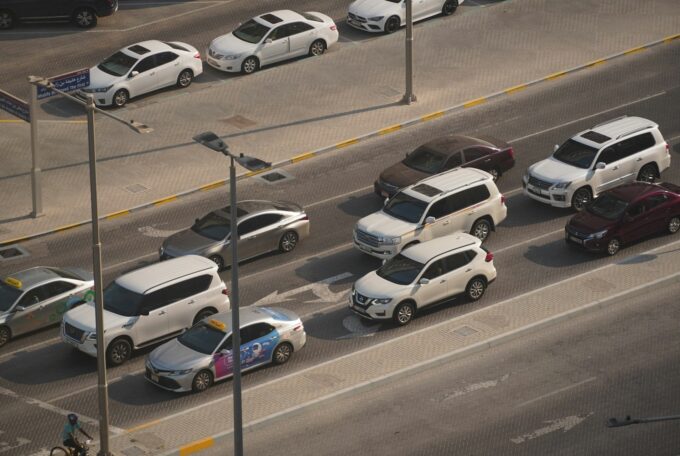When you’re pulled over and handed a traffic citation, it’s easy to assume everything on that ticket is correct. But that’s not always true. Errors can and do happen, and even a small mistake can make a big difference in how a traffic ticket is handled in court. These details matter. A wrong date, a missing detail, or even an incorrect speed zone can create questions about whether the citation was written properly in the first place.
Across Louisiana, drivers get cited by police for things like speeding, failure to yield, or not using a turn signal. While many of these tickets are accurate, others include simple mistakes made during the stop. Most people don’t even notice these errors. Some assume they don’t have any way to fight the charge. But understanding how these mistakes can affect a citation—and knowing what to do if one shows up on yours—can change the way a case plays out.
Common Mistakes Made By Police Officers On Traffic Citations
Police officers work under pressure. Stops can be quick, and it’s not always easy to write everything down perfectly, especially when using handwritten citations or older systems. That’s when honest errors start showing up on tickets across Louisiana. And some of these mistakes could end up helping your case in court.
Here are some of the most common ticket errors drivers see:
– Incorrect driver information: The officer might spell your name wrong, list the wrong license plate number, or confuse vehicle details, especially if you’re driving a rental or borrowed car. Mismatched information can weaken the court’s ability to link the violation to the right person.
– Wrong speed posted: It’s not unusual for an officer to write the incorrect speed limit on the ticket. If they claim the limit was 35, but it was actually 45, that matters, especially if it affects how far over the speed they claim you were going.
– Wrong date or time: A date that doesn’t match when or where you were driving can raise doubts about the event. Night-time citations written as if they happened in the morning, or vice versa, could throw off your defense.
– Description of the violation doesn’t match: Sometimes, officers list charges that don’t match what happened. For example, writing failure to stop at a red light when you were pulled over for speeding. That may result in the citation being challenged for not accurately describing the offense.
– Radar device misuse: Radar or laser devices need to be properly maintained and operated. If a traffic ticket came from faulty equipment or an officer didn’t follow correct protocol, the speed reading may be questioned.
Imagine being ticketed for speeding, only to find out later that the radar gun hadn’t been calibrated in months. That kind of issue doesn’t just cast doubt on the ticket. It may open the door for dismissal.
These kinds of errors aren’t always easy to spot unless you’re looking for them. Reviewing every detail of your ticket helps make sure you weren’t cited unfairly. A good defense often starts with something as simple as a wrong number or typo.
How These Mistakes Can Affect Your Case
When officers make mistakes on a traffic citation, it doesn’t necessarily mean the case disappears. But it does mean the accuracy of that ticket is now in question. That can lead to a range of outcomes, depending on how your case is handled.
Here’s how these errors might affect your situation:
1. The citation might be dismissed entirely. If the mistake is big enough, like listing a car you don’t own or placing you at the wrong location, it weakens the ticket’s strength and may give the judge a reason to throw it out.
2. The fine or charge could be reduced. Even if the ticket isn’t dismissed, showing there were issues with how it was written might help you negotiate for a lower penalty or fewer points on your license.
3. The court may question the officer’s credibility. Multiple errors on the ticket may suggest the officer wasn’t paying close attention, which can shift how the court views the case.
4. Proving the ticket in court becomes harder. If facts on the ticket don’t line up, the state has a harder time proving that the violation really happened the way it was described.
Judges usually expect tickets to be accurate. They understand that small typos happen, but big errors that affect the nature of the charge can make enough noise to shift the case in your favor. What seems like a little error might create a bigger problem for the other side’s case than you think.
Gathering Evidence To Challenge A Traffic Citation
If you’re planning to contest a traffic ticket in Louisiana, especially one involving an officer’s mistake, the first step is gathering the right evidence. The more proof you have that the citation was inaccurate or incomplete, the stronger your position becomes in court. Don’t ignore small things. Even something that seems minor could change the outcome of your case.
Start by reviewing the ticket itself. Double-check every detail like your name, license plate, time of the infraction, and the kind of offense listed. If anything seems off, take note. Then compare what’s on the ticket to what actually happened at the time of your stop. For instance, if the officer marked the road as a construction zone, but you know there was no construction there, document that fact.
Next, pull together whatever physical evidence you can to back up your position. That might include one or more of the following:
– Photos or video from the scene
– Time-stamped screenshots from mobile maps or apps showing your speed or location
– A receipt or record showing where you were at the time of the ticket
– Dashcam recordings, if available
– Witnesses who were in the car with you or nearby when it happened
Witness statements help a lot, especially if someone else saw the incident and can verify that what’s on the ticket doesn’t match what really happened. Have them write down their version while it’s still fresh. This could be helpful later in court.
Lastly, it’s useful to peek at Louisiana traffic laws related to your charge. You don’t need to memorize anything. Just look to see whether the rule cited matches what actually took place. If the law doesn’t apply to your situation, that’s one more point in your favor.
Why A Traffic Citation Lawyer In Louisiana Makes A Difference
Building a strong case often takes more than just proving a mistake was made. It involves knowing how to present the argument, which details matter to the court, and how those details can change the outcome. This is where a traffic citation lawyer in Louisiana becomes a huge asset.
A local lawyer knows the courts, the rules, and the common missteps officers make when writing speeding and traffic tickets. They can go over your citation, look at the evidence you’ve gathered, and find problems that might not be obvious without legal training.
Here’s what a lawyer may bring to the table:
– Spot technical errors or missing info on the citation
– Connect mistakes to legal defenses recognized by local courts
– Raise questions about how enforcement tools like radar or lidar were used
– Negotiate better outcomes, even when a ticket seems valid on the surface
They understand how Louisiana traffic codes are enforced in different parishes. So instead of walking into court and hoping for the best, you’re showing up with a real plan.
An experienced traffic lawyer might help you avoid points on your license, lower your fine, or even get the ticket thrown out. Often, these wins come from small details, like where the stop took place or how the violation was recorded.
Being found responsible based on wrong or missing information isn’t fair. Having someone in your corner who knows these types of cases inside and out can help turn things around.
Don’t Let Small Errors Go Unchallenged
Traffic tickets can seem routine, but they carry real consequences. Mistakes on those tickets may mean you’re being punished unfairly, and that’s something you should never ignore. Something as small as the wrong date or a misused radar gun should never go unchecked.
Most people just pay the fine and move on. But when the ticket has errors, that could be a costly mistake. You shouldn’t be left dealing with increased insurance rates or license points for something that wasn’t done right to begin with.
If you’re unsure of what to do next, help is available. Getting someone to take a close look at your situation can make sure you’re not dealing with penalties for something that’s questionable in the first place.
Your driving record matters. So does your time and your money. If something doesn’t look right on your citation, don’t just shrug it off. Having it reviewed might be the smartest move you make.
Navigating the legalities of a traffic ticket can be daunting, especially when it involves challenging errors. For those looking for guidance, working with a traffic citation lawyer in Louisiana can make all the difference. With the expertise to tackle these issues, LouisianaSpeedingTicket.com is equipped to help you address your ticket troubles and protect your driving record with confidence.





